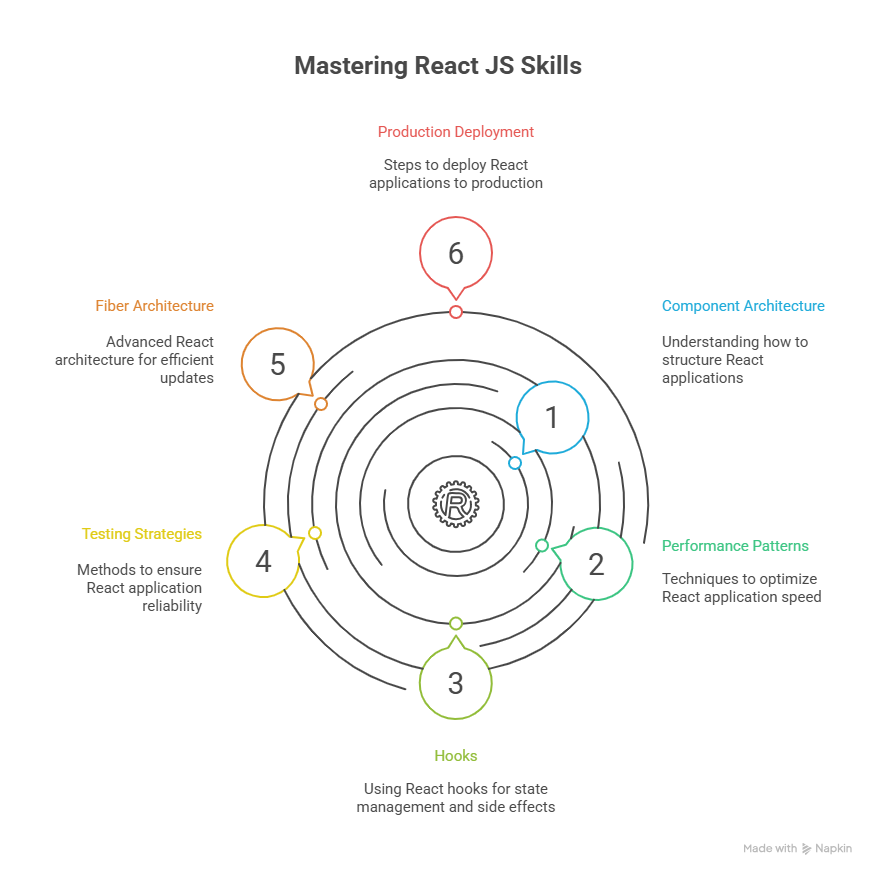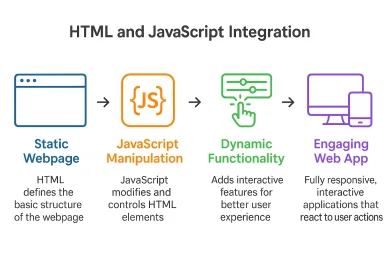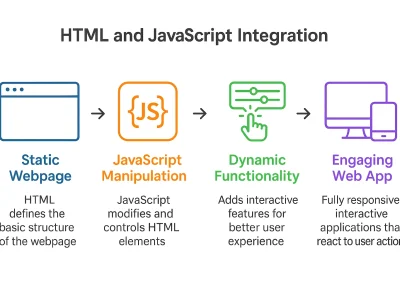In the fast-evolving digital landscape and thriving online business post-COVID, it is imperative to capture user attention with the right tools and techniques. Based on recent statistics, 48% of consumers prefer interacting with brands online than a few months ago. Ninety percent of consumers confirm that they track the latest trends and updates through social media, making digital marketing a non-negotiable aspect of business growth and sustainability.
To stay ahead of the competition and thrive in the online space, adapting to the latest digital marketing techniques for business growth is imperative.
Choosing the right tools can significantly improve the return on investment (ROI) and productivity, enabling the brand to reach its target audience and connect with consumers worldwide. This guide covers over 30 powerful and most relevant digital marketing tools for 2025, helping you find solutions that match your business size, marketing objectives, and budget.
Why Digital Marketing Tools Are Essential for Success
Digital Marketing tools enable businesses to reach their target audience globally, increasing the audience spectrum, engaging with them effectively, and tracking the results for better optimization.
These tools build cost-effective brand awareness, generate leads, and drive sales by tailoring marketing strategies based on the data and adapting to market changes.
Benefits of Using Digital Marketing Tools
- Automation of repetitive marketing tasks:- Tools help reduce manual work by automating emails, managing workflows, and scheduling posts, and releasing time for strategies and ideation to expand global reach and conversion.
- Data-driven decision-making capabilities:– Real-time data insights in customer behavior, campaign performance, and engagement.
- Improved campaign performance and ROI:– Provides real-time feedback analytics and assists in optimizing the strategies with A/B testing.
- Better customer targeting and personalization:– campaigns rolled out for specific customer groups with customized content at scale.
- Time and resource optimization:– allocate resources optimally, reduce manual effort, and streamline marketing operations.
Keyword Research and Analysis Tools
Knowing your target audience’s demand and search preference is crucial. Keyword tool helps to build data-driven SEO and content strategy.
- Google Keyword Planner (Free):– It helps discover search volume, keyword ideas, and competition.
- SEMrush (Paid):– It is a comprehensive platform providing services like keyword analysis, competitive research, and site audits.
- Ahrefs (Paid ):- It is leveraged for backlink data, content gap analysis, and keyword exploration.
- Ubersuggest (Freemium):- Offers SEO audits, keyword ideas, and a traffic estimator.
- Answer The Public (Freemium):- Based on the common search queries, visualize keyword queries.
On-Page SEO and Technical Tools
Technical SEO ensures the content is ranked well and indexed appropriately to get the highest visibility in the user search algorithm.
- Google Search Console (Free):- It searches queries, crawls errors, and monitors indexing status.
- Screaming Frog SEO Spider (Freemium):- It is a powerful site crawler tool that performs SEO audits and is leveraged for small and larger websites efficiently, provides real-time insights, and makes informed decisions.
- Yoast SEO (Freemium):- Drive more traffic to the website, enable the site to meet SEO standards, and automate SEO with WordPress plugins for easy optimization.
- GTmetrix (Freemium ):– Analyse the performance of the website and provide reasons for slowness and levers to optimize it.
- Moz Pro (Paid):– SEO growth platform focused on generating leads and increasing conversion through actionable insights
Backlink Analysis and Building Tools
Strong backlinks elevate search ranking and domain authority.
- Majestic (Paid):- Provides features like author explorer, link intelligence, trust, and citation flow to help build dominance in the market.
- LinkResearchTools (Paid):– Most comprehensive backlink analysis tool, with link audit solution, redirect repair, and link structure fixing, and competitor research.
- HARO (Help a Reporter Out) (Free):- Boost SEO and acquire high-quality backlinks that connect journalists with the source of their articles.
- BuzzStream (Paid):- Helps you grow digital PR, stay organized, and establish end-to-end outreach.
- Pitchbox (Paid):– Full-stack prospecting tool with 20+ options ranging from link detox to skyscraper outreach.
Social Media Marketing Tools
To build a brand online, these tools are prerequisites for scheduling content and analyzing engagement.
Social Media Analytics and Monitoring
- Google Analytics (Free):- Helps measure traffic, conversions, and user behavior.Populating metrics like referral source, engagement rates, and campaign performance.
- Facebook Analytics (Free):– Provide insights into audience demographics, interests, and behaviors.
- Brandwatch (Paid):- AI-driven, intelligent analytical tool to drive better decisions.
Content Creation and Design Tools
- Canva:- User-friendly drag-and-drop features leveraged for social media posts, posters, flyers, and Ads.
- Adobe Creative Suite (Paid):– Tools like Photoshop, Premium Pro, and Illustrator.
- Figma (Freemium):– Prototyping tool with web-based design to design websites, mobile Apps, etc.
- Unsplash (Free with paid options):- A powerful photo engine that provides high-quality photos.
Social Media Management Platforms
- Hootsuite (Freemium):– Manage social media faster and smarter with less effort, saving time and growing audience.
- Buffer (Freemium ):– With AI assistance, provide a complete set of publishing Integration.
- Later (Freemium ):- Primarily leveraged by visual-driven platforms like Instagram, TikTok, Facebook, etc.Helps with scheduling posts, analyzing performance, and managing content.
Email Marketing Tools
Email Marketing is one of the highest ROI digital marketing channels.
Email Campaign Management
- Mailchimp (Freemium):-Email marketing and automation platform, increasing repetitive customer base.
- Constant Contact (Paid):- Helps small businesses and Non-profits with digital marketing campaigns.
- GetResponse (Paid):- With AI and Automation, it is an easy and affordable platform to market, automate, and sell.
Email Automation and Personalization
- HubSpot Email Marketing (Freemium):-Improves customer engagement, streamlines campaigns, and enables automated email sequence triggers based on user actions.
- Klaviyo (Freemium):- Powerful email and SMS marketing tool that creates targeted, automated sequences triggered for specific user groups.
Email Deliverability and Testing
- SendGrid (Freemium):- Ensure Email authentication, inbox rendering test, and content analysis.
- Mailgun (Freemium ):- Improves email program performance and ROI through Inbox Placement Testing and email authentication checks.
- Postmark (Paid):- Focus on Transactional emails and high deliverability.
Content Marketing and Creation Tools
Authentic and quality content is the heart of digital marketing.
Content Planning and Strategy
- Trello (Freemium):- Allows organizing ideas, managing content calendars, and tracking progress.
- Asana (Freemium):- Streamline content workflows and enhance team collaboration.
- Notion (Freemium):- Centralize content information for brainstorming to schedule posts, and track performance.
Writing and Editing Tools
- Grammarly (Freemium):- Perform quality checks, detect plagiarism, and provide vocabulary suggestions.
- Jasper AI (Paid):– AI-powered content generator, helpful in blog posts and social media updates.
- Copy.ai (Freemium):- Rewrite content effortlessly with GTM AI Sentence Writer in a few clicks.
Visual Content Creation
- Canva Pro (Paid):- Provides advanced design tools and resources for individuals, small businesses, and teams.
- Piktochart (Freemium):- Creates presentations, reports, posts, and infographics in seconds.
- Venngage (Freemium):– Using Gen AI and smart algorithms to decide the optimal layout, colors, charts, etc.
- Crello (Freemium):- User-friendly interface for content creation, which helps improve brand awareness.
Analytics and Data Tracking Tools
Tracking performance and ROI is imperative to the growth of a business.
Web Analytics Platforms
- Google Analytics 4 (Free):- Analyses and tracks user behavior using cross-platform tracking, machine learning insights, and focuses on user-centric measurement.
- Adobe Analytics (Paid): A Powerful tool used by businesses to measure, analyze, and optimize digital marketing efforts.
- Mixpanel (Freemium):– Product analytical tool for measuring product engagement and user behavior.
- Hotjar (Freemium):- Visualizes user interaction to understand why they behave in certain ways.
Marketing Attribution and ROI Tools
- Google Tag Manager (Free):– Helps manage website Tags and track ROI without modifying website code.
- Facebook Pixel (Free):– Optimizes for ROI and conversion, tracking the effectiveness of Facebook ads.
- HubSpot Analytics (Freemium):- Analyzes the impact of marketing touchpoints in the buyer journey, driving conversion and revenue.
Conversion Rate Optimization
- Optimizely (Paid) :- Improve website effectiveness and conversion through CRO and A/B testing.
- VWO (Paid):- Provides tools for personalization, behavioral analytics, and form analysis, along with various aspects of CRO.
- Leadpages (Paid):– Create high-converting landing pages, capture leads, and optimize A/B testing with AI-powered insights.
- Google Optimize (Free):- Establishes seamless Integration with Google Analytics, allows multivariant testing, redirect testing, and personalization.
Marketing Automation and CRM Tool
CRM and Automation improve the overall customer management lifecycle.
All-in-One Marketing Platforms
- HubSpot (Freemium):- Manages contacts and leads and tracks sales.
- Salesforce Marketing Cloud (Paid):– Comprehensive all-in-one digital marketing platform that enables the management and Automation of marketing efforts across various channels.
Customer Relationship Management
- Salesforce CRM (Paid):– Cloud-based CRM that manages customer interaction and data.
- Zoho CRM (Freemium):– known for flexibility, affordability, and ability to integrate with other ZOHO business applications.Offers customer support activities and streamlines sales and marketing.
- Freshsales (Freemium):- AI-based CRM enables personalized customer conversation and boosts sales conversion.
Paid Advertising and PPC Tools
Maximize online visibility and drive targeted traffic.
Google Ads Management
- Google Ads Editor (Free):- Creates and edits ads, even if offline, and makes bulk changes quickly.
- SEMrush PPC Toolkit (Paid):- Organizes keywords, simplifies planning, and sets up Google ads campaigns.
Social Media Advertising
- Facebook Ads Manager (Free):- Central hub for Facebook advertising needs.
- LinkedIn Campaign Manager (Free):– Self-service advertising platform.
- Twitter Ads (Free):- Allows users to reach a wider audience and promote products and services by sponsoring tweets.
Ad Creative and Testing Tools
- AdEspresso (Paid):- Simplify and optimize digital advertising, specifically for Instagram, Facebook, and Google Ads.
- Canva (Freemium):- It is a free-to-use online graphic design tool.Creates social media posts and presentations.
- Figma (Freemium):- Leading collaborative design tool for creating meaningful products.
How to Choose the Right Digital Marketing Tools
Evaluation Criteria
- Budget constraints and ROI expectations:- Must be cost-effective.
- Team size and technical expertise:- Select tools that match your skill level.
- Integration requirements with existing systems:- A Compatibility check is a must.
- Scalability for future growth:– Must be leveraged for long-term growth.
- Industry-specific needs and compliance:- Mandatory adherence to regulatory norms and niche.
Implementation Best Practices
- Phased rollout strategies:– Introduce toll gradually as business per business expansion.
- Team training and adoption plans:- Continual learning and training as the digital world evolves.
- Data migration and setup considerations:- Cleaning, organizing, and migrating data from the legacy system correctly with the new tool.
- Performance monitoring and optimization:- Metrics-driven business growth given direction and clarity.
- Regular tool audits and updates:- Perform a periodic assessment with the right tool to stay relevant in the competition.
Free vs. Paid Digital Marketing Tools
Free and paid tools have their importance in business growth strategy depending upon growth stage, budget, and operational complexity.
When Free Tools Are Sufficient
Free tools are helpful when leveraged in the right context.
- Startup and bootstrap phases:- Minimizes early cost expenditure.
- Testing new marketing channels: Evaluated the right tool before investing, as needed.
- Basic reporting and analytics needs:– Free tool provides necessary features
- Simple automation requirements:- Many freemium models provide this as a basic feature
- Limited team collaboration needs:– The team can work within limits without additional costs.
When to Invest in Paid Tools
As the digital business grows, investing in paid tools makes it easier to manage and operate.
- Scaling marketing operations complexity of expansion through Automation, advanced features, and integrations.
- Advanced features and customization:- Allow deeper segmentation, which is crucial for optimizing.
- Priority customer support:- Provides faster support and dedicated support managers.
- Enhanced security and compliance:- Enables encryptions and audit logs.
- Professional branding and white-label options:– Helps in building credibility.
Future Trends in Digital Marketing Tools
Emerging technologies are reshaping tools and their usage.
AI and Machine Learning Integration
- Predictive analytics and forecasting:- Leverage AI to plan campaigns based on projected outcomes.
- Automated content generation:- Reduce manual efforts and improve quality.
- Smart bidding and optimization:- Improves overall ad performance.
- Personalization at scale:– Increases engagement and conversion rates.
- Voice and conversational marketing:- Smart assistants and conversational interfaces engage customers.
Privacy and Data Protection
Digital tools comply with global regulatory norms and customer expectations.
- Cookie-less tracking solutions:- Adjust as per regulatory norms and privacy changes.
- First-party data strategies:- Direct connect with customer.
- Compliance automation tools:- Adherence to laws and legal disclaimers.
- Privacy-focused analytics:- Provides privacy-compliant analytics.
- Consent management platforms:- Manage user consent for cookies.
Conclusion
Choosing the right digital marketing tool, one that aligns with both business strategy and technology, makes a significant difference. From SEO and content creation to email marketing and analytics, the selection of the right digital marketing tools can be a game-changer. It starts with identifying the unique need and trying to combine free and paid versions that are aligned with business goals. Evolve with the advancement in the automation field with continuous learning. With an adaptive mindset and the right tools, your marketing efforts can drive exceptional growth and long-term brand loyalty.
Learn Digital Marketing from Scratch – Explore Digital Marketing Course designed to help you master tools like SEO, email marketing, social media, and analytics.





